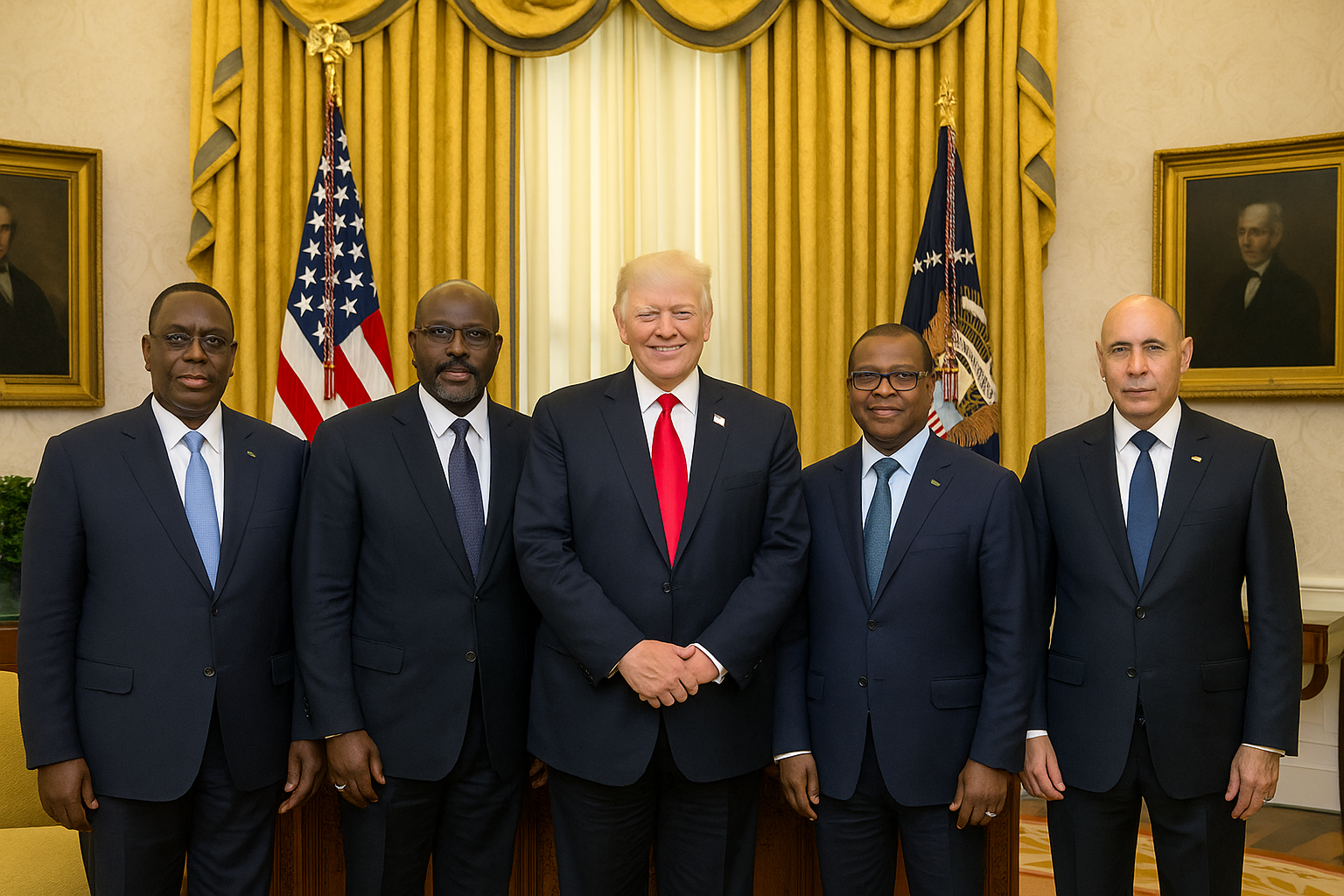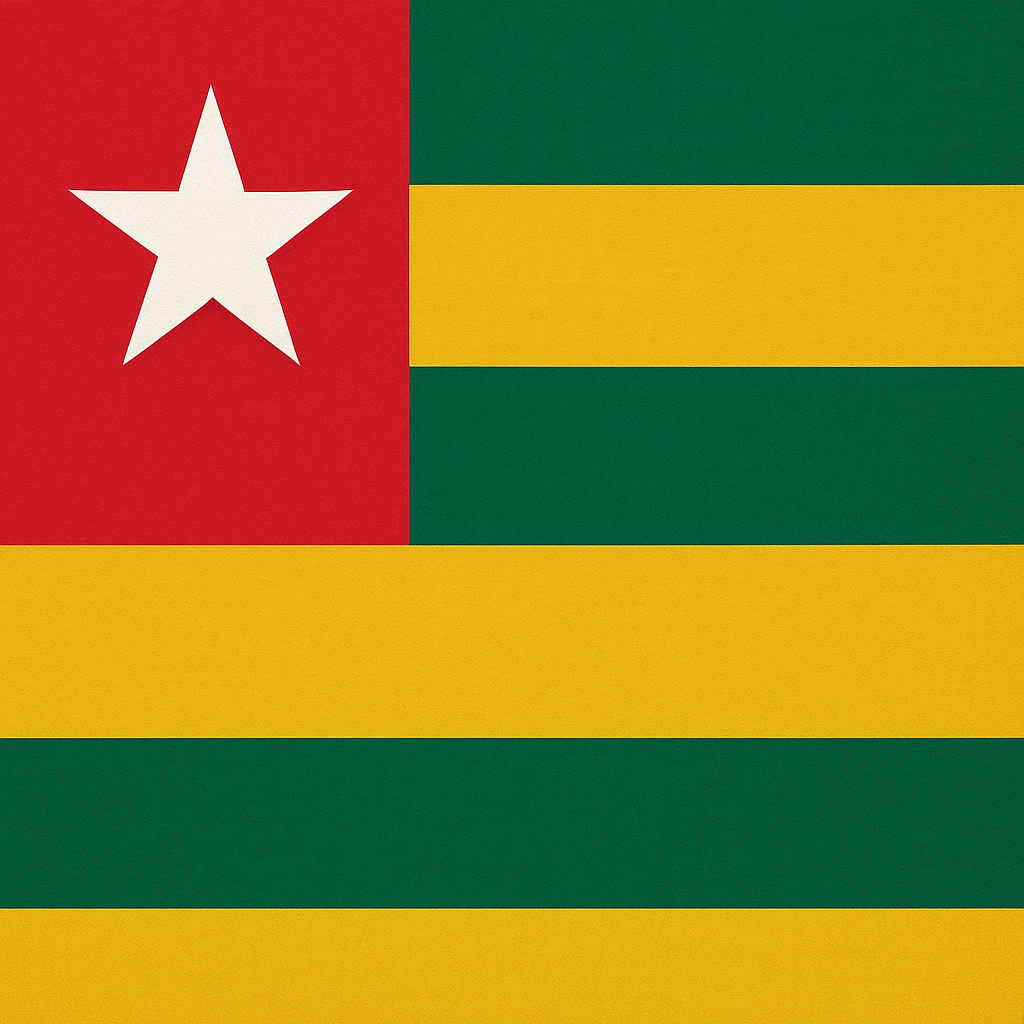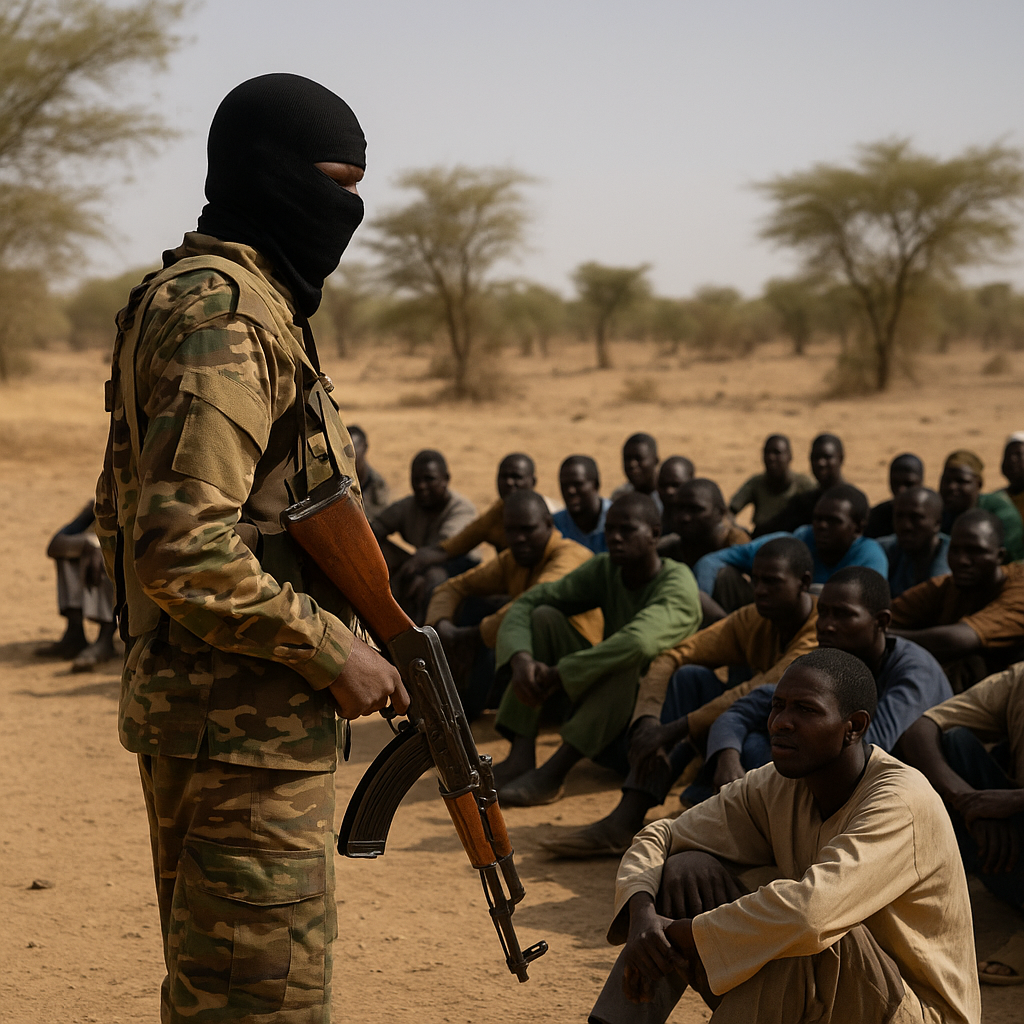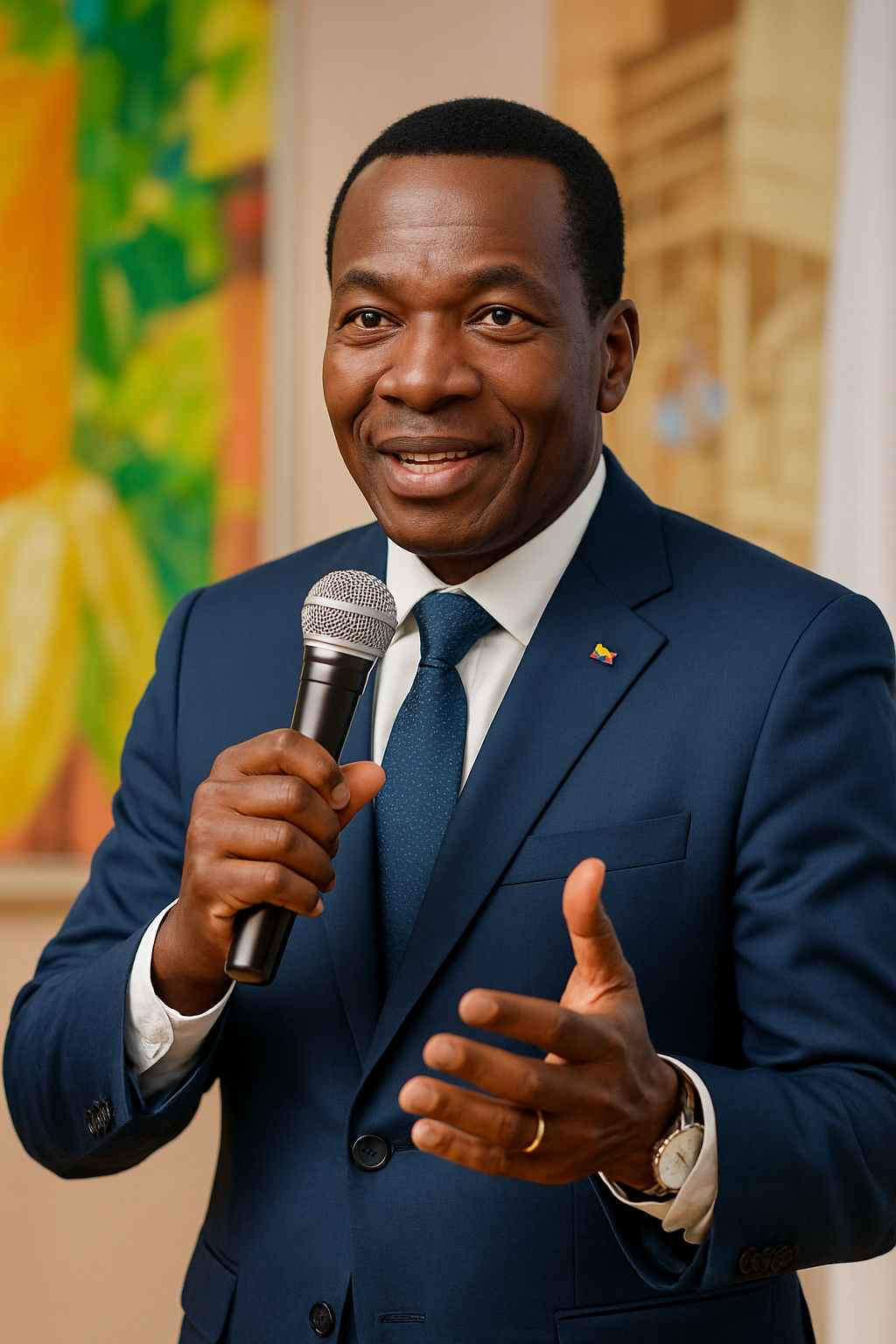On July 9, 2025, U.S. President Donald Trump hosted a delegation of West African leaders for a groundbreaking summit at the White House. The leaders of Senegal, Liberia, Guinea-Bissau, Mauritania, and Gabon gathered in Washington, D.C., with trade and economic development at the forefront of the discussions. The summit marked a significant shift in the nature of U.S.-Africa relations, signaling a new era focused on partnership rather than aid.
For years, the United States has been a key player in providing foreign aid to African nations, especially in areas like health, infrastructure, and education. However, President Trump emphasized during the meeting that Africa’s growing economic potential presents an opportunity for more collaborative partnerships based on mutual benefit. He underscored the importance of increasing trade ties, fostering business opportunities, and expanding investment in the region, which he argued is key to boosting both African economies and the global economy.
The leaders discussed various challenges facing the region, including security concerns, infrastructure development, and ways to manage migration. Trump encouraged the leaders to engage more closely with U.S. companies and urged them to implement business-friendly policies that would attract foreign investment. The U.S. government is particularly interested in the development of sectors such as agriculture, technology, and manufacturing, all of which hold substantial promise for economic growth.
The discussions also touched on the role of African countries in addressing global challenges such as climate change and security. The United States expressed its willingness to partner with African nations to combat terrorism and violent extremism, with an emphasis on providing training and intelligence-sharing capabilities. Trump praised the region’s progress in establishing frameworks for regional cooperation, highlighting the African Union’s role in fostering stability and peace across the continent.
In addition to economic cooperation, the summit also addressed the issue of migration. The West African leaders shared their concerns about the impact of irregular migration on their countries and on Europe. The leaders acknowledged the importance of addressing the root causes of migration, such as poverty, lack of opportunity, and political instability, through targeted economic policies and support for job creation.
As part of the discussions, Trump also urged African leaders to strengthen democratic institutions and promote good governance. The U.S. highlighted the importance of fostering transparency, combating corruption, and upholding the rule of law, all of which are essential for creating an environment conducive to growth and development.
This meeting, which focused heavily on trade and economic growth, is expected to pave the way for deeper engagements between the U.S. and West Africa in the years to come. The leaders returned to their respective countries with renewed optimism about the potential for greater economic cooperation and a strengthened partnership with the U.S.
As this partnership deepens, it is likely that we will see more private sector investment in the region, with U.S. businesses exploring opportunities in agriculture, energy, and manufacturing. Furthermore, the summit set the stage for more high-level talks on infrastructure development, with the U.S. looking to support the construction of roads, bridges, and energy plants across West Africa. As African nations continue to develop, the prospect of a balanced, mutually beneficial partnership with the United States could prove to be a critical component of the region’s economic success in the coming decades.
2. Ghana Launches Task Force Against Illegal Gold Mining
Illegal gold mining, known locally as “galamsey,” has been a significant issue in Ghana for years, leading to widespread environmental damage, loss of government revenue, and poor working conditions for miners. In response to this growing problem, Ghana’s President John Mahama officially inaugurated the GOLDBOD Task Force on July 8, 2025. This initiative aims to clamp down on illegal gold mining operations by providing enhanced security measures and a more robust legal framework for the industry.
The gold mining sector is vital to Ghana’s economy, as the country is one of the world’s largest producers of gold. However, illegal mining has become a growing concern due to its devastating environmental impact. Streams and rivers have been contaminated with mercury, a common chemical used in gold extraction, while forests and farmlands have been destroyed by the digging of unregulated mine pits. The Ghanaian government has been under increasing pressure to address these issues, which have also led to significant revenue losses from taxes and permits that are not collected from illegal miners.
The GOLDBOD Task Force will consist of a team of security personnel, military officers, and mining experts tasked with monitoring mining operations across the country. This task force has been granted the authority to arrest and detain individuals involved in illegal mining, ensuring that enforcement of the law is effective and swift. The government is also working with local communities to educate miners on the dangers of illegal mining and to encourage them to shift to legal mining operations.
In addition to the enforcement of laws, the task force aims to formalize the gold mining industry by helping miners transition to legally registered operations. The Ghana Gold Board, established in January 2025, has been working to regulate the sector and ensure that mining is done in a way that benefits the country. The goal is to create a formalized market where miners can pay taxes and contribute to national development while adhering to environmental regulations.
President Mahama emphasized that while illegal gold mining has provided economic opportunities for many, it also comes with a heavy cost in terms of environmental destruction and loss of government revenue. The GOLDBOD Task Force is expected to play a critical role in restoring order to the gold mining sector and ensuring that the country’s gold resources are harnessed in a way that benefits both miners and the broader economy.
Ghana’s efforts to regulate illegal gold mining are also supported by international organizations, which have highlighted the need for greater enforcement of environmental regulations. As the task force begins its operations, it is likely that Ghana will see a reduction in illegal mining activities, leading to cleaner rivers, healthier ecosystems, and more revenue flowing into the country’s coffers.
The success of the GOLDBOD Task Force will depend on cooperation between the government, the mining sector, and local communities. By working together, they hope to achieve a more sustainable and profitable gold mining industry that will contribute to Ghana’s long-term economic prosperity.



